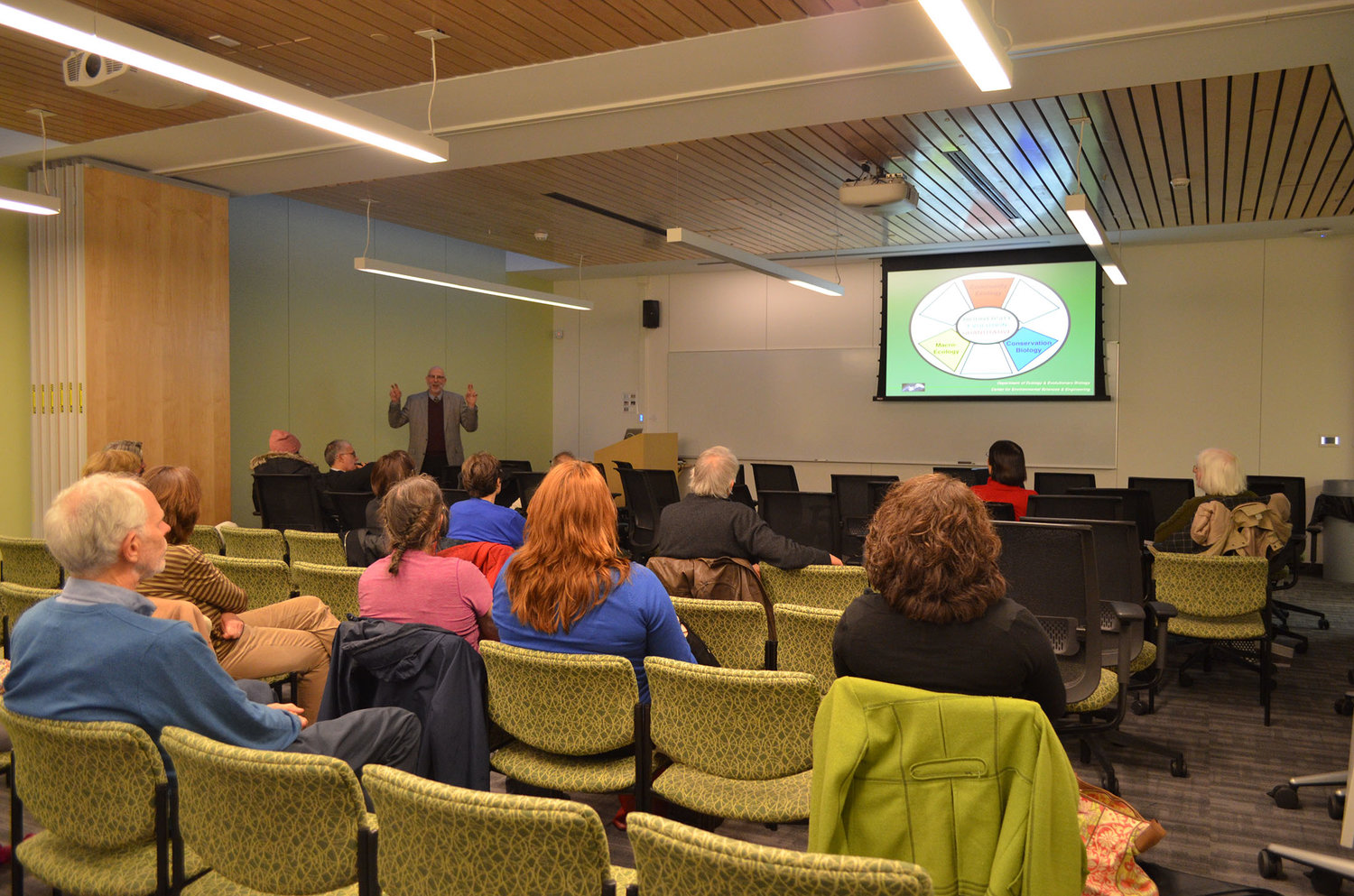
Dr. Michael Willig gives a lecture at Oak Hall on Tuesday, November 29, about the various dimensions of biodiversity and how factors affect it, and how climate change may change the abundance and distribution of certain species. Dr. Willig is a professor of Ecology and Evolutionary Biology at UConn and is also the Director for the Center for Environmental Sciences and Engineering. (Akshara Thejawsi/The Daily Campus)
The University of Connecticut will offer a new science writing course designed to instruct undergraduate students of all majors on how to clearly communicate the contents of scientific papers to broad audiences.
“We’re just starting enrollment for [Science Writing for Non-Scientific Audiences EEB 3895],” ecology and evolutionary biology professor Dr. Margaret Rubega said. “Our intent is for the course to be as interdisciplinary as possible.”
According to Rubega, the course, which is taking place during the spring semester, is to teach undergraduate students how to analyze and write about scientific papers for general audiences.
“We want students to learn how to take very technical information and write about it in a clear, concise and maybe even a lively way,” Rubega said.
Another one of the course’s goals is to provide STEM majors with a way to apply and get a product from the information they learn in their STEM courses, according to physiology and neurobiology assistant professor in residence John Redden.
“Both Dr. Rubega and I had an interest in teaching a STEM W class, but looking at these courses for STEM undergrads, we saw they were all technical writing,” Redden said. “The majority of science undergrads won’t be doing technical writing on a daily basis. They’ll need to explain what they know to their mom, their dad [or] their patient.”
Rubega and Redden said in the future they hope to connect Science Writing for Non-Scientific Audiences EEB 3895 with a service learning course Redden is now teaching.
“We want them to be linked together somehow,” Redden said. “We’re still working out the details.”
Graduate-level science writing courses may become affiliated with Science Writing for Non-Scientific Audiences EEB 3895 over time, Rubega said.
“With my colleagues in [ecology and evolutionary biology] and journalism, we received a grant to teach grad students in science communication,” Rubega said. “The grant allows for alumni of the grad program to be TAs for the undergrads.”
According to Redden, making scientific research more accessible to wider audiences will allow scientists and non-scientists to better communicate with one another.
“There’s a huge disconnect between what’s generally accepted as true in the science community and the general population,” Redden said. “Bridging this gap is the responsibility in part of people who understand science. [Scientists] have to put blame on ourselves for being poor teachers and communicators.”
“This new course is great for someone skeptical about key aspects of science. Scientists talk and convince each other about things…I would love to have some folks who feel skeptical about things,” Rubega added.
Further information about Science Writing for Non-Scientific Audiences EEB 3895 may be found in the course catalogue.
Source

